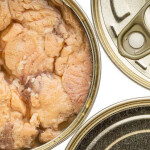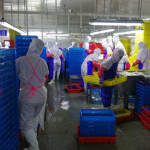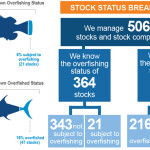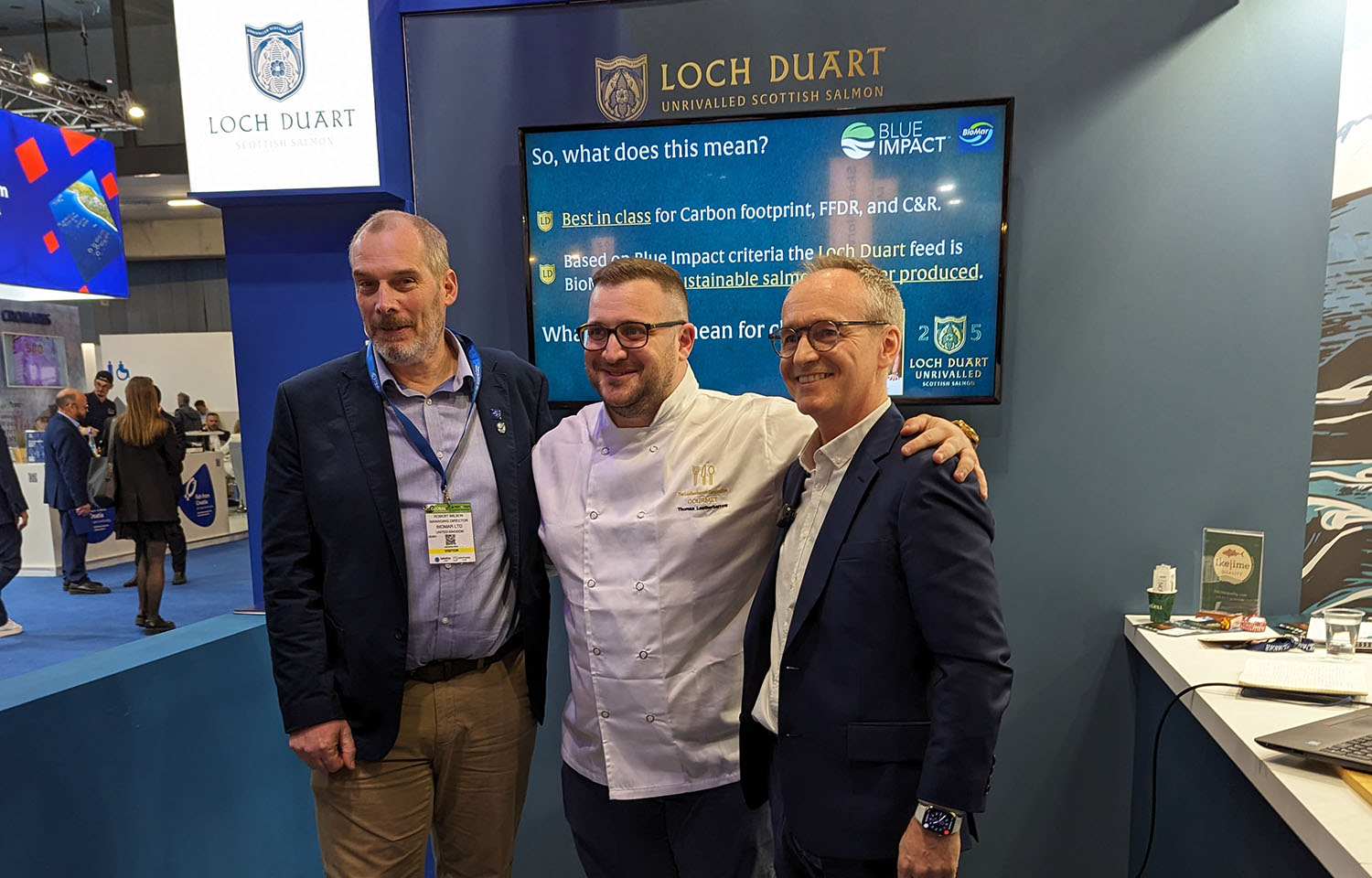Scottish salmon-farming company Loch Duart is celebrating its 25-year anniversary by hitting multiple feed-based environmental impact targets years ahead of schedule.
The company, which farms salmon in Northwest Scotland, announced a partnership with BioMar to create a special version of the company’s “Blue Impact” feed, allowing it to exceed its carbon, ingredient, and forage fish dependency ratio (FFDR) targets ahead of schedule. BioMar debuted its Blue Impact feed in 2022, and Loch Duart announced it was using the feed in June 2023.
As part of its switch to the new feed, Loch Duart set a goal of reaching below 2 kilograms of carbon emissions per kilogram of feed, an FFDR of below 0.7, and a circular restorative ingredients goal of having 25 percent of the marine ingredients used in its feed coming from sustainable byproducts of other fish ingredients.
During a special reveal of the results at the 2024 Seafood Expo Global in Barcelona, Spain, on 23 April, the company revealed that it met or exceeded most of those metrics.
BioMar UK Managing Director Rob Wilson told SeafoodSource that the company has had multiple aquaculture companies pick up the Blue Impact feed, but Loch Duart was a special challenge due to its marine ingredient commitments.
“The big challenge with them is the Label Rouge,” Wilson said. “Label Rouge means 15 percent marine content. In other diets, where you don’t have that restriction, you can replace some of the content with algal oil. We can’t do that here.”
Label Rouge, a French certification, is an important label of quality for many Scottish salmon producers, and Loch Duart is no exception.
Not being able to use any alternative algal oils or ingredients forced BioMar to find a way to still use marine ingredients in a regenerative way.
“The big challenge was to find that balance and make it sustainable,” Wilson said.
The solution for Loch Duart was to source trimmings and byproducts from the production of other sustainable fish species and use them in a Blue Impact feed specifically tailored to Loch Duart.
Loch Duart Sales Director Chris Orr told SeafoodSource the results speaks for themselves. The company far exceeded its carbon emission targets, with just 1 kilogram of CO2 emissions per kilogram of feed. That total is half the company’s target and 56.5 percent less than standard feeds, Orr said.
The FFDR was also much lower than the target, reaching just 0.33. That, too, was less than half of the company’s target. The company also beat its byproduct target of 25 percent regenerative ingredients and managed to achieve 40 percent – meaning a ...








